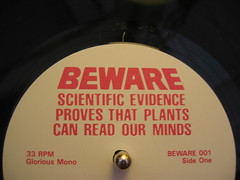The advice given by green advocates is definitely well-intentioned, even if it may be unclear at times. Sometimes, they may give advice or information that is open to interpretation. Writers must include the necessary caveats, subject nouns, or explanations that bring accuracy to the sustainability party, the green revolution or whatever you are calling your ecological epiphany.
A case in point comes to us from the Exchange For Green: Green Living, Better Living network website via their advice that they mention comes via the Real Simple website.
Before explaining, I'll mention a few caveats of my own. First, I love Real Simple, and their work is very helpful for thrifty people everywhere. Second, I am very impressed with the Exchange For Green Network. Third, I share this story, because the information can help you be a critical thinker and live sustainably in a healthy way.
When I read the Green Advicespotlight, I notice it listed a decanter, hot water, vinegar and dishwashing soap. The directions stated,
Swirl the rice around for a few minutes to remove the residue, rinse with hot water, and air-dry.There was no clear information as to which was being cleaned, the rice or decanter. Therefore, I inferred from their directions that the advice was about cleaning 1 cup of rice, enough rice for meal preparation. Not knowing what they maaaay have been talking of cleaning, I became alarmed...don't use dishwashing soap to clean your rice.
So, as the effective consumer I try to be, I decided to find the reference link on the Real Simple website. There was no link to the the Real Simple article at the Exchange for Green Advice, so I had to search the Real Simple website. Using the following key words (tags) alone and in various combinations: rice, clean, decanter, dish soap, I never found the reference.
Next, I did a browser search and found an article called "How to Clean The Inside of a Glass Bottle" (aka decanter), at TipNuts. This was a great advice article. It was very clear in its meaning and directions. The author mentions using rice to clean glass bottles, but only suggests using 1 teaspoon of rice. This makes sense, so there maaaay be a misprint: 1 cup of rice on the Green Network website maaay have been mistakenly substituted for the recommended 1 teaspoon of rice.
It is NOT sustainable to use 1 Cup of Rice. If you need to use that much rice that will be destroyed, you are not living sustainably...therefore NOT GREEN. If you need that much of an abrasive substance, you would be better served in using some sterilized, cleaned, fine-grained sand. The sand can be cleaned using solar heat or other simple, sustainable methods. You can reclean this light abrasive, store in a repurposed container and save for use another time.
Personally, I would use a long bottle brush and other substances, that are sustainable or low/nonpolluting, to clean a decanter. Since the bottle brush may not be readily available, a long spoon and a dishcloth can be substituted for the bottle brush.
My suggestion is that you should comment if you notice or perceive problems on a person's blog or advice blurb. Ask questions if something they've written doesn't seem correct and sustainable. That's what I do, and I'm on my way to their website. To comment, I had to sign up to be in the network, and I'm waiting for a login.
Enjoy working towards a sustainable life and always ask questions!







